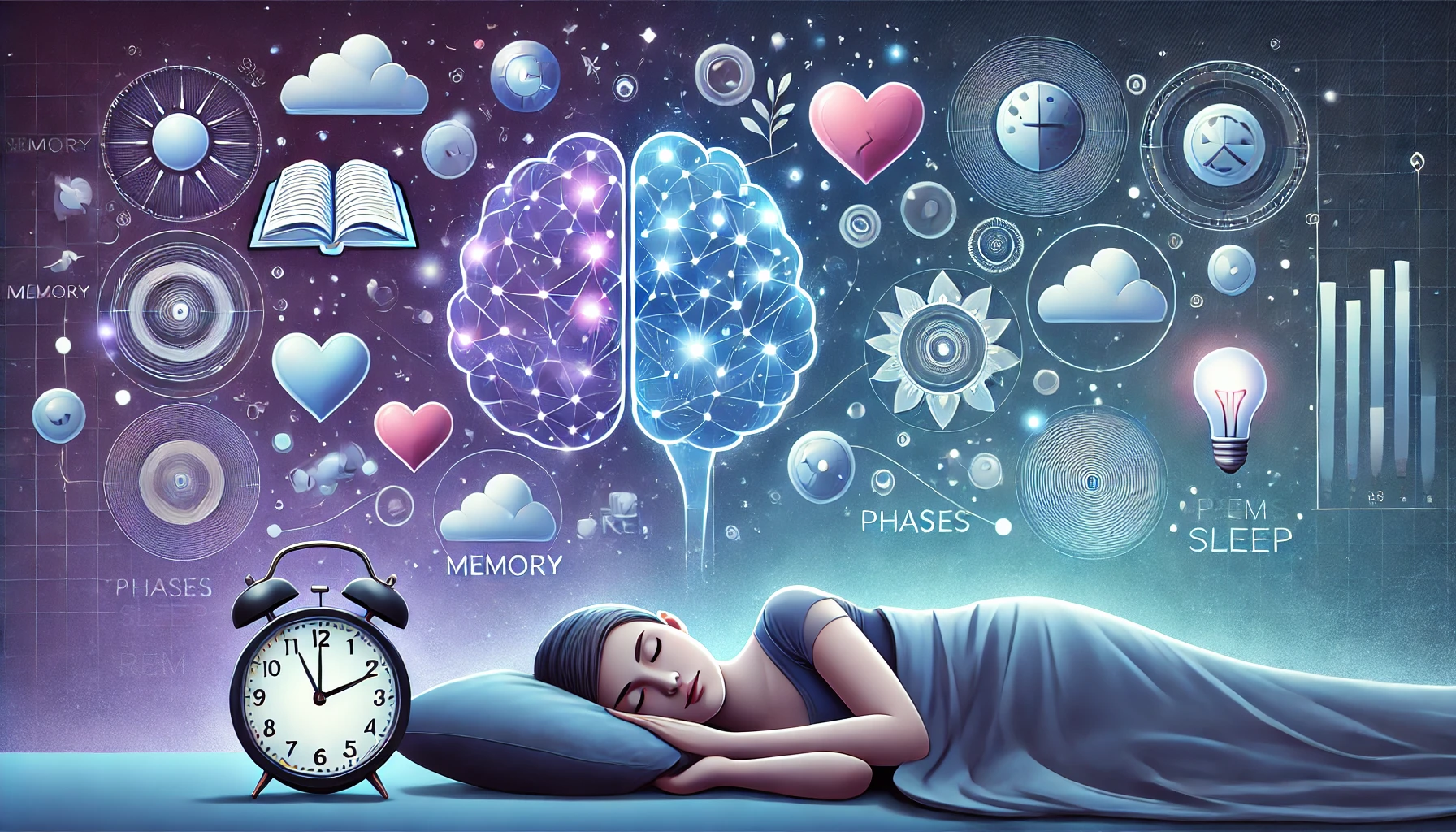Rapid Eye Movement (REM) sleep is a fascinating and critical phase of the sleep cycle where dreaming occurs and the brain processes emotions, memories, and learning. This phase, marked by rapid eye movements, heightened brain activity, and temporary muscle paralysis, plays a pivotal role in mental and physical health. But what exactly happens during REM sleep, and why is it so important?
The Science of REM Sleep
REM sleep typically begins about 90 minutes after you fall asleep and recurs every 90-120 minutes throughout the night. It accounts for about 20-25% of total sleep time in adults and even more in infants.
During this phase, the brain becomes almost as active as when you’re awake. Scientists have observed rapid bursts of brain activity in the prefrontal cortex and limbic system, regions responsible for decision-making and emotions.
One key feature of REM sleep is muscle atonia—a state where the body’s voluntary muscles are temporarily paralyzed. This prevents you from acting out your dreams, ensuring safety during sleep.
Why Do We Dream During REM?
Dreaming primarily occurs during REM sleep due to increased brain activity and communication between memory and emotional centers. The limbic system, which includes the amygdala and hippocampus, becomes highly active, creating vivid and often emotional dreams.
Experts suggest that dreams are the brain’s way of processing emotions, solving problems, and consolidating memories. According to Dr. Matthew Walker, a sleep expert and author of Why We Sleep, dreaming allows the brain to “cleanse” itself of emotional distress, providing a type of overnight therapy.
Health Benefits of REM Sleep
- Memory Consolidation: During REM sleep, the brain integrates and organizes memories, transferring information from short-term to long-term storage. This is why REM sleep is vital for learning.
- Emotional Regulation: Research shows that REM sleep reduces the intensity of negative emotions. Lack of REM sleep has been linked to heightened anxiety and mood disorders.
- Brain Development in Infants: Babies spend up to 50% of their sleep in the REM phase, indicating its importance for cognitive and neural development.
- Creativity Boost: Dreaming during REM has been linked to creative problem-solving. Many artists, writers, and scientists have credited dreams for their breakthroughs.
What Happens If You Lack REM Sleep?
REM sleep deprivation can lead to serious consequences. Studies show that missing out on this phase impairs memory, reduces learning capacity, and increases emotional sensitivity. Chronic REM sleep deprivation has been linked to depression, anxiety, and even neurodegenerative diseases like Alzheimer’s.
A lack of REM sleep also affects physical health. It weakens the immune system, increases inflammation, and disrupts hormonal balance, contributing to issues like weight gain.
What Influences REM Sleep?
Several factors can impact the amount and quality of REM sleep:
- Sleep disorders like sleep apnea can fragment REM cycles.
- Alcohol and caffeine consumption reduce REM sleep duration.
- Stress and irregular sleep schedules disrupt the natural sleep cycle.
To improve REM sleep, experts recommend maintaining a consistent sleep routine, avoiding stimulants before bed, and creating a relaxing bedtime environment.
Fun Facts About REM Sleep
- Your eyes move rapidly, but scientists still don’t fully understand why. Some suggest it might be related to dream imagery.
- During REM, your body temperature regulation is paused, so external temperatures can influence your dreams.
- The longest REM periods occur closer to waking up, which is why morning dreams feel so vivid.
Closing Thoughts
REM sleep is far more than a time for dreaming—it’s a crucial period of repair, growth, and mental processing. From strengthening memories to regulating emotions, this phase plays an essential role in overall well-being.
Understanding the importance of REM sleep can inspire you to prioritize healthy sleep habits, ensuring your mind and body reap the full benefits of this mysterious and remarkable phase of sleep.
So tonight, as you drift into slumber, remember—your dreams are not just stories but vital work done by your brain to keep you healthy and thriving.
Ethan Numeros is a distinguished dream analysis expert with a background in Mathematics and Philosophy from Stanford University and specialized training in Dream Analysis. With 15 years in academia, he has authored two acclaimed books and numerous articles, focusing primarily on dream interpretation. Mr. Numeros excels in offering personalized consultations, helping individuals unlock the mysteries of their dreams. His expertise in decoding the psychological aspects of dreams has made him a sought-after figure in the field of dream explanation.
